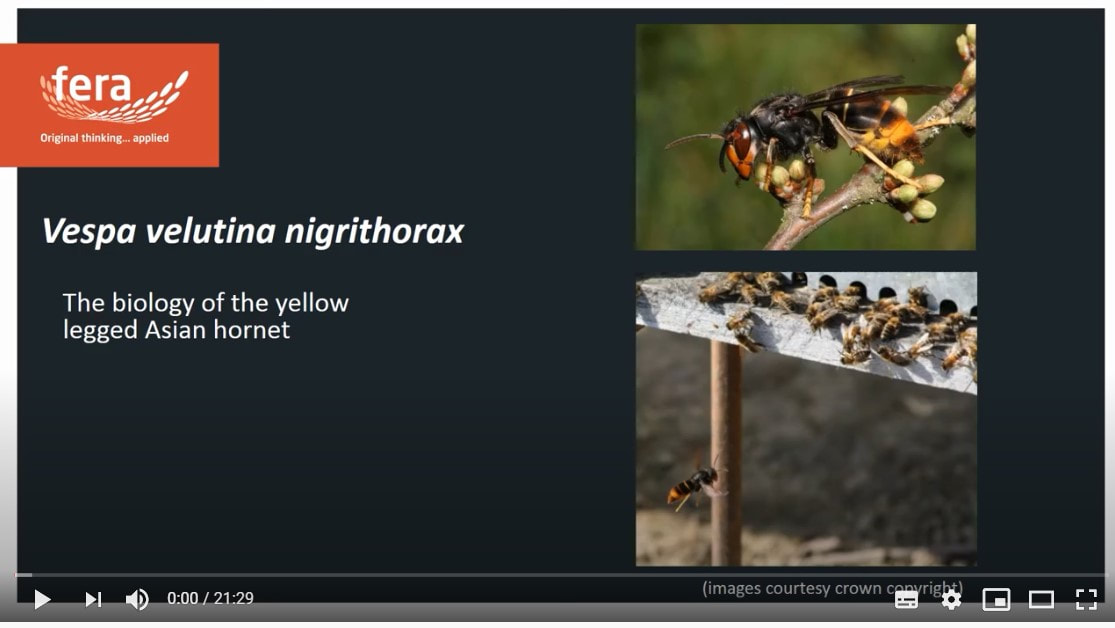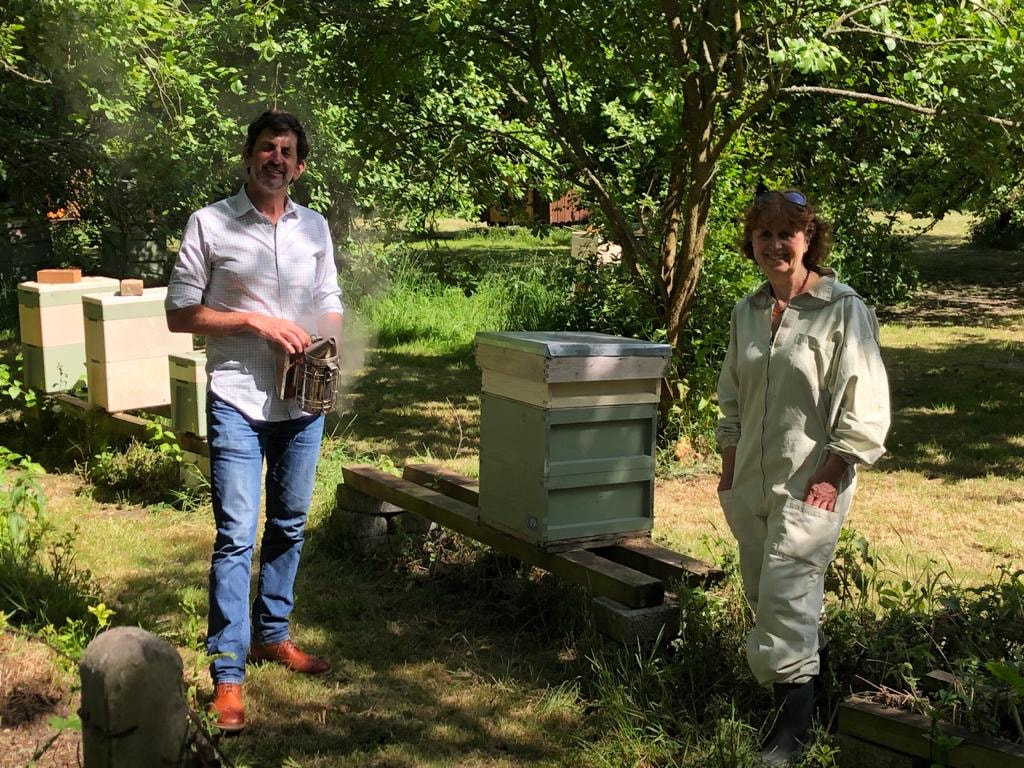|
This month the National Bee Unit has released three training/educational videos created by Fera Science and presented by Kirsty Stainton on YouTube.
Asian hornet Biology Asian hornet Genetics European Foulbrood The videos help fill the gap left by the National Bee Unit being unable to carry out any Bee Health Day training, evening Association talks or attend any national events due to COVID-19 restrictions. We've been trying to unravel the problems which have stopped some of those who register for Zoom webinars from receiving the event hyperlink from Eventbrite on the day.
The email containing the hyperlink is timed to be sent out two hours before the event starts. Some email providers are known to block or delay delivery of emails for online events including Hotmail, MSN, Live.com, Yahoo!, AOL, SBCglobal (to name a few). We suggest:
The BBC’s Chief Environment correspondent Justin Rowlatt (pictured above) is running a series of news features about Asian hornets (Vespa velutina nigrithorax) across BBC channels tomorrow (Wednesday, June 3).
Our AHAT coordinator Lynne Ingram (also pictured) was one of the experts he interviewed for his investigation into this non-native insect He spent a very hot and sunny time with Lynne in her home orchard apiary to talk about the impact Asian hornets would have if they became established here. Lynne said: “This is a great opportunity to get the information about Asian yellow legged hornets out to a wider public; to encourage everyone to keep their eyes open for this invasive species; to be able to identify it, and then to report it. “Also, Justin was interested in the way beekeepers have formed themselves into Asian Hornet Action teams across the country in readiness for any possible incursions.” Catch the news reports on:
brood SW Regional Bee Inspector Simon Jones is warning beekeepers against using old comb in bait hives and has asked us to highlight the disease risks associated with using combs from an unknown source.
He said it had been brought to his attention that someone in the Exeter area is selling old brood combs to bait swarm traps on ebay. As we say on our website: “There is little doubt that there is a need to focus on apiary hygiene in Somerset. Many diseases can be spread by beekeepers’ actions, but perhaps the most important are those that are not readily visible. EFB often exists in a sub-clinical state and Somerset has a persistent problem with EFB… Nosema is another endemic problem linked to colony losses with the prevalence of Nosema apis and N. ceranae both around 40 per cent of apiaries in the South West. Without an approved treatment, the only management option for Nosema is good hygiene practices.’ Why would a beekeeper want to spent £15 on an old, dark brood comb from an unknown source when it could pose a health risk? As seasonal bee inspector Eleanor Burgess said in her webinar about swarming recently, bait hives can be set up with attractants including lemon grass oil, a large lump of propolis and swarm lures are available commercially. The video was taken by our chairman Stewart Gould and shows the delightful sight of a swarm moving into a new home. |
Archives
March 2024
Categories
All
|
Somerset Beekeepers Association Charity © 2021 Registered CIO Charity 1206483
Affiliated to the British Beekeepers Association
Click here to view our Privacy Policy
Affiliated to the British Beekeepers Association
Click here to view our Privacy Policy



 RSS Feed
RSS Feed
